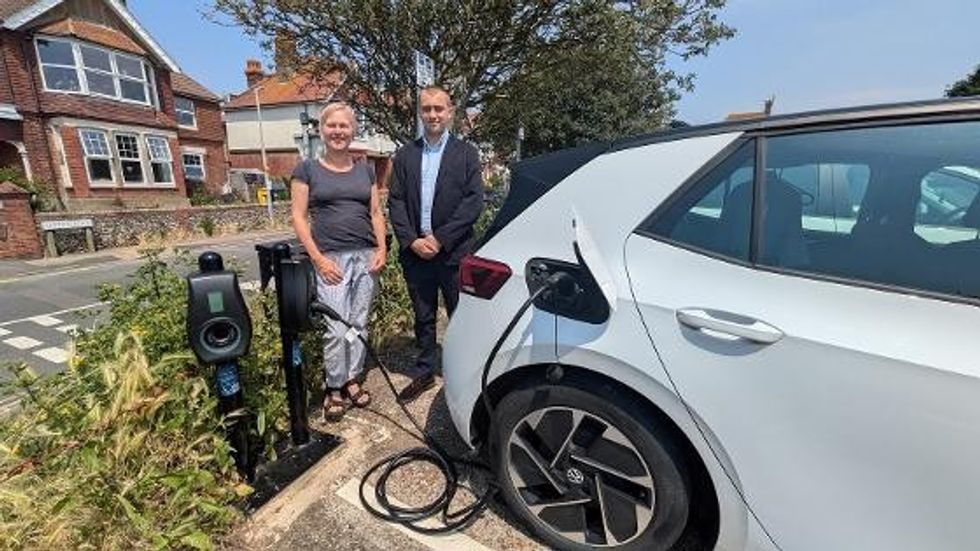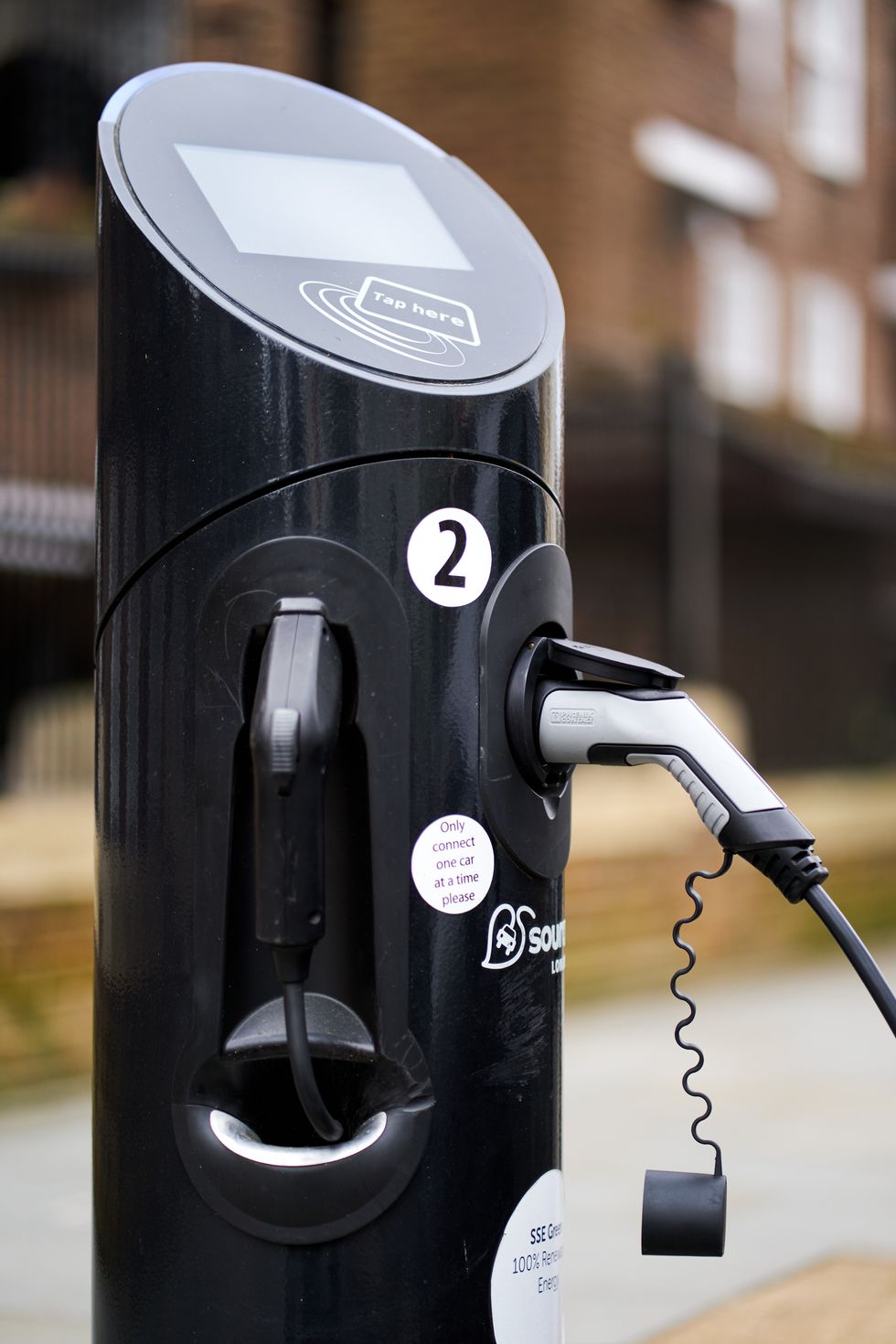Local authority makes major changes to UK car parks in snub for petrol and diesel vehicles
UK needs to have 22 per cent of new car sales electric by this year
The council rolled out 65 public charging points
Don't Miss
Most Read
Trending on GB News
A local authority has unveiled a major change to car parks within an area which will benefit electric car users.
Lewes District Council has installed 64 public charging points for electric vehicles across 11 of its car parks.
The additional chargers come after the council signed a 15-year agreement with Connected Kerb.
The partnership provides and sets up the charging points, as well as replacing existing broken rapid charging units.
Do you have a story you'd like to share? Get in touch by emailingmotoring@gbnews.uk

Connected Kerb signed 15-year contract with council
Lewes District Council
In Lewes, the car parks with electric vehicle charging points include Mountfield Road, Little East Street, Phoenix Causeway, West Street (Needlemakers) and Friars Walk.
They are also installed in Sutton Road, Saxon Lane and West Street car parks in Seaford; Bay Vue and Lower Place car parks in Newhaven; and Barcombe car park.
Councillor Emily O'Brien, said: "We want to make it easier for local people to do right thing for the environment.
“I've heard from many people who want to get an electric car and can afford to do so, but they don't go ahead because of lack of access to chargers or to off-street parking where they can install one.”
"By putting affordable charge points into our council-owned car parks we make it much easier for those people to take that step towards a greener future, " she detailed.
Meanwhile, Councillor Wendy Maples, added: "With the need to move away from petrol and diesel vehicles, residents and visitors expect EV provision and we are pleased to announce that the infrastructure is now up and running across a number of our district car parks."
The chargers form part of the Government’s ambitious strategy to roll out 300,000 public charge points across the country in the next seven years.
Chris Pateman-Jones, CEO of Connected Kerb, explained that ensuring that the Lewes district has “long-lasting, future-proofed EV charging infrastructure is essential to the UK's aspirations to move to more sustainable forms of transport and meet its net zero targets".
The UK is currently undergoing huge changes in how it views travel with petrol and diesel cars no longer a viable option.
As the country moves away from traditional fuel methods, electric cars or hybrid models are becoming more prominent.
The previous Conservative Government hoped to be fully net zero by 2035, which would also mean a complete ban on new sales for petrol and diesel cars.
In order to meet this deadline at least 22 per cent of new car sales would need to be electric by this year, an ambition many experts have warned is too great.
LATEST DEVELOPMENTS:

There are nearly 1,200,000 fully electric cars on UK roads
PAAs of the end of July 2024, there are nearly 1,200,000 fully electric cars on UK roads.
Zapmap data recorded: “Despite the percentage of new car sales being electric remaining close to 2023 levels both petrol and diesel cars show declining numbers of new car sales, whereas battery-electric and plug in hybrid sales are increasing in volume.”








